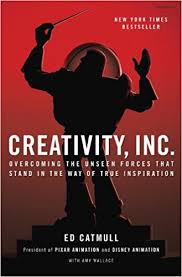
The Chilbury Ladies’ Choir
by Jennifer Ryan
Published by Crown Publishing Group
I love when a book of fiction takes something from fact and teaches me something that I didn’t know. Of course, throughout history people have kept journals and correspondence – that’s how we know of things that happened in our past, without the benefit of TV and social media. What I didn’t know was that the British government encouraged those at home to keep journals of their experiences during the war. Again, just another way for the stalwart British to “keep calm and carry on”, but more importantly we are left with the diaries and journals of everyday lives on the home-front.*
This book is told in the epistolary style, through the journals and letters written by the women of Chilbury, and although it is fiction, it doesn’t feel like fiction. You’re peeking into the personal lives of ordinary women that went through this in reality; an amalgamation of the wives, sweethearts, daughters and sisters as they wait at home. Their hopes and dreams, and how they cope with the trepidation of losing a loved one; and the ever growing fear of Nazi invasion.
“Just because the men have gone to war, why do we have to close the choir? And precisely when we need it most!”
It’s the summer of 1940; England is sending its men off to war, leaving the women to keep the home fires burning – and taking on roles typically held by men. And that includes the village choir!
Being told that the choir is being disbanded for lack of men doesn’t sit well with Prim – the high energy, no nonsense, music teacher. Not to be deterred, she convinces the women of Chilbury that they can create their own choir. Some were skeptical, but with the usual aplomb displayed by the British during the worst of times, they pulled together with the knowledge that this one small thing could help keep the worries of the war at bay – even for just a little while. And so, the Chilbury Ladies’ Choir is born.
But this book is more than just a story about a choir, although it’s a central theme. What really pulls these ladies together is the common ground of village life, and how they cope with air raids, food rationing, and of course a little romance and scandal.
The choir is made up of more women than we actually get to hear from, but the letters and journals that we do get to peek at follow an interesting group of women.
Kitty – although still a teenager, she’s an aspiring singer, and under the tutelage of Prim gains her voice and her confidence. She’s got a childhood crush on someone from the village, and it leads her to do something spiteful and mean.
Mrs. Tilling – a lonely widow, now having to cope with the fear of losing her son as he goes off to join the war. She’s the caring nurse that people rely on, and who has guessed an incredible secret.
Miss Paltry – a devious mid-wife, who hatches a plan out of greed, the money that she seeks a disturbing form of redemption for something in her past.
Venetia – the beauty that all the young men want but, of course, she only has eyes for the one that doesn’t give her the time of day. Has she fallen for the wrong guy, and can she face the consequences of her actions?
Sylvie – the youngest, and still a child, is a Jewish refugee that has seen far more than someone should for her age. Will she ever find out what happened to her family, and can she trust someone with her secret?
There are a host of other characters as well, and even though we never get to read their own journals or letters, they are just as important as their lives intertwine with those telling us the story.
From charming and funny, to heartbreaking and hopeful, this book has all the right ingredients to make it a favorite of mine, and one that I would highly recommend.
Another book that it’s very similar to this one, and another that I loved and would recommend, is “The Guernsey Literary and Potato Peel Pie Society” by Annie Barrows and Mary Ann Shaffer. Also written in the epistolary style, this book chronicles the fictional lives of women on Guernsey during the German occupation.
*Known as Mass-Observation, its goal was to record observations of everyday life in Britain, by using untrained volunteer observers. It was criticized as an invasion of privacy, because the observers were not only reporting on their own lives, but on the lives of friends and neighbors as well. For more information, visit the Wiki page: https://en.wikipedia.org/wiki/Mass-Observation
As always, comments are welcome
Share this:





